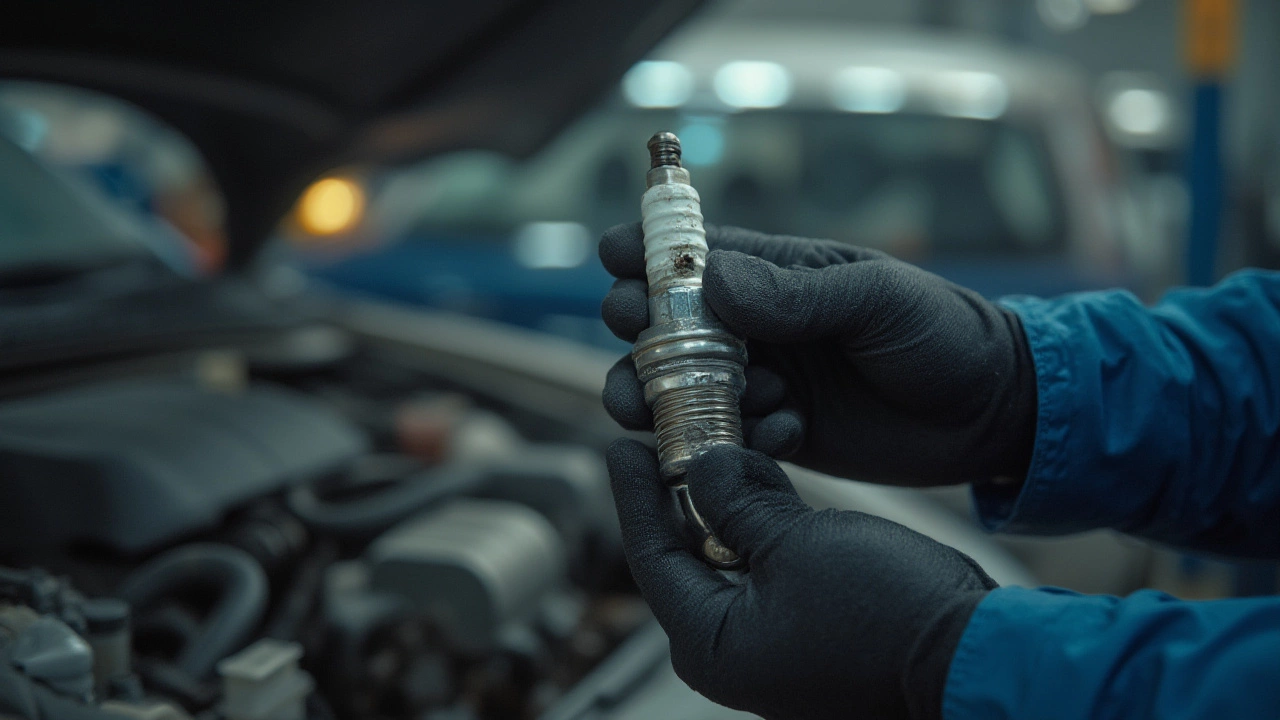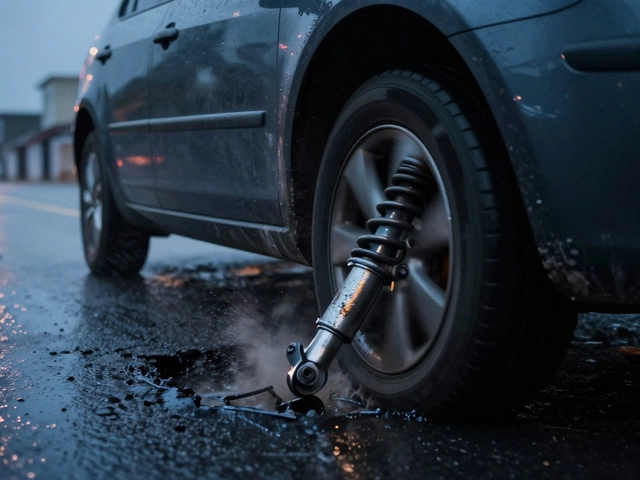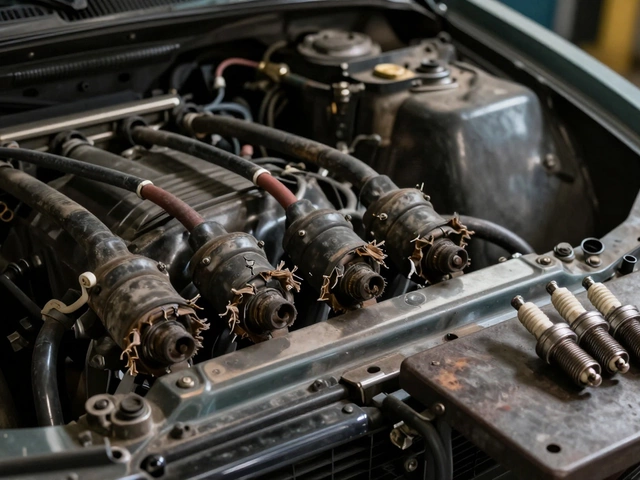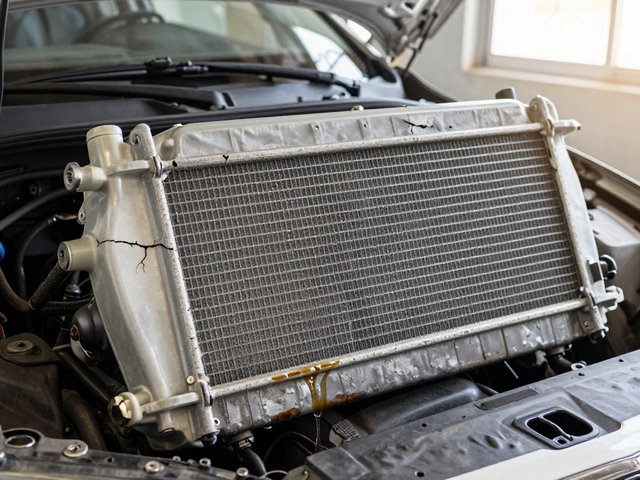Ever had your car sound like it’s gargling gravel or seen the fuel gauge drop way faster than it should? That’s usually when spark plugs are begging for attention. Strangely, a lot of drivers put off replacing these tiny parts, treating them like background extras in a blockbuster movie. But skimping on spark plug changes is like ignoring that nagging leak under the sink until the floor warps. Neglected spark plugs mess with your engine on a level you might not even realize at first. Left unchecked, they can ruin a perfectly good drive, hit your bank account, and even turn your car into a rolling paperweight.
Why Spark Plugs Matter More Than You Think
It’s easy to overlook something as small as a spark plug, but these little guys pull serious weight inside your engine. Picture them as the lighters to your car’s internal fireworks show. They ignite the air-fuel mixture, kicking off combustion every single time you start your engine. And without a reliable spark, your car doesn’t just get moody—it starts losing power, stuttering, and belching out more smoke than a 90s nightclub.
Delaying spark plug replacement brings on a slow-motion meltdown. Worn plugs make your engine work harder just to stay on the road. At first, the changes are subtle—a little slower pick-up, a slight hiccup when you accelerate. But with time, those minor issues gather into a perfect storm. Here’s what’s really happening inside:
- Old spark plugs cause incomplete combustion. Some fuel just isn’t ignited, which wastes petrol and slowly fills your exhaust system with residue.
- Your engine’s computer, or ECU, can try to compensate. But unless you’ve got a car with AI-level diagnostics, it won’t save you from running rough or burning more fuel.
- Ignition misfires get more frequent. Each misfire isn’t just a lost beat—it jostles and strains other engine parts, wearing them out faster.
- Unburnt fuel gets dumped into your exhaust, clogging your catalytic converter and hiking up repair costs.
Not convinced? According to a 2024 survey from the UK-based RAC, nearly 22% of unexplained poor fuel economy cases were linked to neglected spark plugs. And as Tom Denton, author of 'Automobile Electrical and Electronic Systems', said,
“Of all car maintenance problems, spark plugs are among the most overlooked—and yet, a faulty plug often sets in motion a chain of issues that threatens the whole engine.”
The bottom line: if your plugs are old, your car isn’t running at its best, and everything from performance to emissions takes a hit. And you wouldn’t ignore your phone battery dying, would you? Same goes for these parts.

The Unexpected Costs of Skipping Replacement
Sure, a new set of spark plugs for most family cars costs less than a Friday night takeaway. But skip that expense and you set yourself up for costs that hit way harder. Here’s how the numbers break down for drivers in Manchester and across the UK in 2025:
- Reduced fuel efficiency: The Department for Transport estimates that faulty spark plugs can drop your fuel economy by up to 30%. That’s like tossing one in every three litres of petrol straight out the window.
- More engine repairs: Ignition misfires trigger the dreaded check engine light. Ignore it, and you could be facing repairs from fouled catalytic converters (£400 to £800) to failed ignition coils (£150+ a pop).
- Voided warranties: Manufacturers check service histories. Miss your spark plug schedule and you might be footing the bill for a failed engine component out of your own pocket.
- MOT failures: Poor combustion affects emissions. Show up at the garage with bad plugs, and you might get a fail sticker thanks to sky-high CO2 levels or engine misfire readings.
One thing a lot of people don’t expect? You might even wreck your starter motor. A struggling engine puts more strain on the starter, which isn’t built for the long haul. Suddenly, your simple fix turns into a mountain of costs.
If money talks, listen up: £20 now for new spark plugs can save you hundreds—if not thousands—later. Plus, newer plugs (like iridium or platinum models) can last over 60,000 miles, so you’re not exactly living at the mechanic. Those who ignore the warning signs often learn this the hard way, usually when their car refuses to start on a cold Manchester morning or chokes in the middle of the M62.
Ever noticed your car’s idle becoming rough, feeling like it’s shaking itself awake after a nap? That’s another tell-tale sign. Some drivers experience the dreaded “limp mode,” where your car’s computer restricts power to protect the engine—leaving you crawling at 30mph just to get off the road.
Think all cars are affected equally? Not by a long shot. Modern engines are leaner and rely on precise ignition. A spark plug past its prime cripples cutting-edge technology, whether it’s direct fuel injection or stop/start systems. Hybrid and plug-in cars aren’t immune either—their ICE (internal combustion engine) systems still depend on “old-fashioned” plugs.

Spotting the Warning Signs and Handling Spark Plug Trouble
Imagine getting stranded after work, engine cranking endlessly while traffic builds behind you. A lot of breakdowns trace back to neglected spark plugs. But you can spot trouble early, often from your driver’s seat. Here’s what to look and listen for:
- Engine misfires—jerky acceleration or sputtering on idle
- Poor fuel economy—fewer miles per tank, no change in your driving
- Difficulty starting in wet or cold weather
- The dreaded “check engine” or misfire warning light
- Unusual engine smells—like petrol or rotten eggs from the exhaust
- Noticeably less power, especially going uphill
- A rough, vibrating idle that just feels wrong
If your car’s giving off these vibes, don’t shrug it off. The actual replacement process isn’t as scary as it sounds, especially if you follow your owner’s manual. Even if you’re not a “DIY under the bonnet” type, knowing when to book that garage appointment keeps you ahead of disaster.
Here’s how to stay out of trouble:
- Check your car’s spark plug interval. Most petrol engines need fresh plugs between 20,000 and 60,000 miles. Turbocharged and performance models may need them even sooner.
- Buy the right plugs. Don’t go cheap or off-brand—stick with the parts recommended by your car’s maker. A mismatched plug can run too hot or too cold, again risking engine trouble.
- Watch for tell-tale signs. If you notice rough running, misfires, or harder starts, it’s time to inspect or replace.
- Trust the pros. If you’re not sure how to change spark plugs, book with a reputable mechanic. Many small garages in Manchester will do the job while you wait and throw in a quick engine health check.
Some drivers wonder if high-performance plugs are worth it. For most daily drivers, standard quality is good enough. But if you’ve tuned your car, do plenty of motorway miles, or haul heavy loads, upgrading to platinum or iridium plugs could make a difference in durability and spark strength.
The smart move? Don’t gamble. Skipping spark plug changes is like refusing to brush your teeth—sure, you might get away with it for a while, but the day of reckoning is coming. And when it hits, it really hits. So, next time your car feels off and the mileage starts dropping, remember: it might just be those little plugs crying out for a swap. Pay attention now, and you’ll keep your drive smooth, quiet, and—most importantly—reliable.





